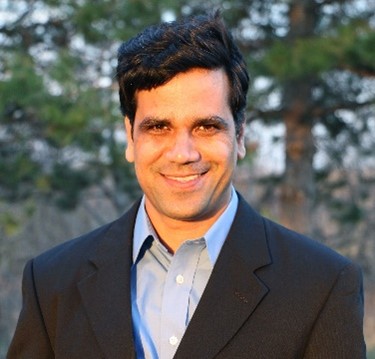Seminars
Seminars 2024-Spring
The Spring 2024 Seminar Series is via zoom. For questions on upcoming seminars, contact us here.

January 31, 2o24
Tailoring resistive switching materials for neuromorphic computing applications
Speaker: Nareg Ghazikhanian
University of California, San Diego
Various materials exhibit resistive switching (RS), a useful feature which lends well to the development of novel bioinspired electronic devices, notably artificial neurons and synapses for neuromorphic computing. This effect can often manifest through the percolation of conducting filaments or the formation of transverse barriers. The location and switching parameters of RS are often impacted by inherent material defects which pose a challenge for scalability. By selectively engineering defects in VOx using a focused ion beam, we report a novel method of locally tuning a material’s electronic properties (i.e. conductivity and metal-insulator transition temperature) and by extension, controlling the location and geometry of RS. In this talk, I will provide a basic introduction to neuromorphic computing concepts and describe how RS materials can be engineered to emulate neuronal and synaptic functionalities. I will discuss a series of experiments in which we were able to localize an electrically driven insulator-to-metal transition through defect engineering and the implications this has on energy-efficiency (where a greater than 3 orders of magnitude reduction in switching power is observed). I will conclude my talk by discussing various characterization methods (including X-ray nanoprobe, near-field optical microscopy, infrared emissivity, etc.) used to investigate potential changes in RS mechanism and how resistive switching materials offer promising avenues for new energy-efficient biomimetic circuitry.
Nareg Ghazikhanian is a PhD candidate in the Materials Science Program at UC San Diego working in the physics department with professor Ivan Sculler. He received a B.S. in Nanoengineering in 2017 and a M.S. in Materials Science in 2019 from UC San Diego. Nareg’s work focuses on locally modifying the electronic structure of complex oxides via defect engineering and characterizing their structural, electronic, and magnetic properties.

February 07, 2o24
Two-dimensional Materials for Bio-realistic Neuromorphic Hardware
Speaker: Dr. Vinod K. Sangwan
Research Associate Professor
Materials Science and Engineering, Northwestern University
TBD Brain-inspired computing hardware is emerging as an alternative to Si CMOS to solve the looming energy crisis of processing rapidly increasing generation rate of digital data. Conventional non-volatile memories can realize highly parallelized in-memory computing in neural networks, but they lack the adaptability and reconfigurability that are the key attributes of low-energy biological systems. To this end, neuromorphic devices based on 2D materials embody bio-realistic tunable learning, coupled state variables, non-linear responses, and multi-terminal architectures of synapses. In this talk, I will portray the promise of 2D materials for this technology by drawing connections between fundamental properties, form factors, and required functionalities in artificial synapses, neurons, and network architectures.[1-4] As a few examples, MoS2 memtransistors show bio-realistic synaptic learning in scalable crossbar arrays for higher-dimensional dynamic neural networks.[5] Anomalous ferroelectricity in bilayer graphene moiré synaptic transistors achieves unprecedented adaptive learning.[6] Dual-gated, self-aligned, mixed-dimensional Gaussian heterojunction transistors realize not only complex spiking behavior but also enable low-power hardware for machine learning algorithms for edge computing.[7,8]
References: [1]: Nature Nano. 10, 403 (2015) [2]. Nature 554, 500 (2018) [3] Nature Nano. 15, 517 (2020) [4] Advanced Materials 2108025 (2022) [5] Matter 5, 4133 (2022) [6] Nature 624, 551 (2023) [7] Nature Comm. 11, 1565 (2020) [8] Nature Electronics 6, 862 (2023)
Dr. Vinod K. Sangwan is a Research Associate Professor in the Department of Materials Science and Engineering at Northwestern University (NU). He obtained a B.Tech. in Engineering Physics from the Indian Institute of Technology Mumbai and a Ph.D. in physics from the University of Maryland (UMD) College Park. Dr. Sangwan received the Iskraut award during his graduation from UMD and recently received the 2021 IEEE Chicago Outstanding Senior Research and Development award. His research interests include nanoelectronics, neuromorphic computing, renewable energy, and quantum information science. He has published over 100 peer-reviewed journal papers in journals like Science, Nature, Nature Nanotechnology, Nature Materials, Nature Communications, etc., and 12 granted and pending patents. At NU, he has mentored four post-doctoral researchers and three dozen graduate and undergraduate students and is a co-principal investigator on multiple grants totaling $4 million. He participates in teaching at NU, local outreach activities, and leadership roles in APS, MRS, and IEEE.

